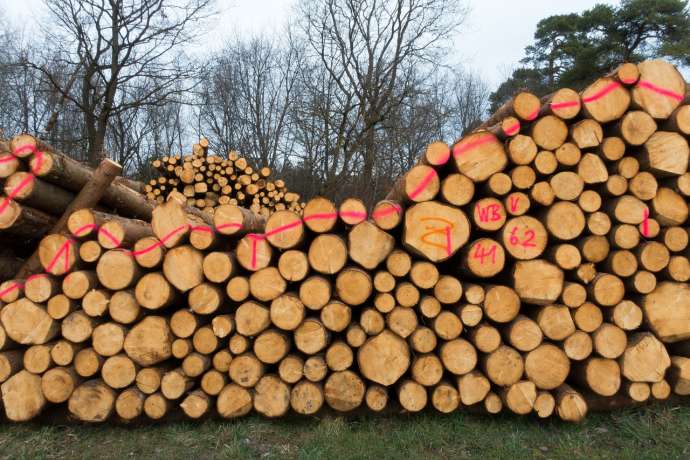STA, 20 December 2019 - Slovenia's forest management is facing a number of challenges due to severe windstorms increasing in intensity and frequency, a consequence of climate change. This year's extent of related damages has been the greatest so far, with experts urging adapting forest management to global warming.
Related: Ljubljana Predicted to Be World's Fastest-Warming City
The bark beetle outbreak and spread, caused by the 2017 and 2018 windstorms, posed another threat, forcing the government to declare a natural disaster this year.
Slovenia is one of the most heavily forested European countries - forests cover more than 58% of the country, with 20% of woods being state-owned.
The annual forest increment has been nearing 9 million m3 of trees. Meanwhile, last year's allowed felling amounted to 6.8 million m3.
More trees had to be felled in the recent years, partly due to clean-up efforts resulting from windstorm damage.
After the 2014 ice storm, causing damage to more than 9 million m3 of trees, bark beetle poured gasoline on the fire and devastated more than 8 million m3, while windstorms wreaked havoc on some 3 million m3 of trees.
Since 2014, forest rangers have had to fell almost 18 million m3 of trees. Clean-up felling has accounted for at least half of all cutting down in the past years.
During winter, such removal efforts need to go on since the majority of bark beetles overwinter in adult development stages and have to be decimated during the wood removal and processing.
"Nature-friendly, sustainable and multi-purpose forest management as developed in Slovenia in the past 50 years is an effective framework for responding to climate change," said the Slovenian Forest Service.
One of the main future challenges in the field will be adapting tree species. The spruce is the most endangered one, with its share decreasing in areas unfit for its growth. On the other hand, the beech tree acclimatises more easily, which is reflected in its share being on the rise.
However, the experts believe that the beech tree will stop flourishing due to climate change as well, with the oak and other deciduous trees thriving in warm climate.
Whereas global warming has a negative impact on forests, trees play a major role in mitigating climate change since use of wood and wood products is beneficial for balancing out carbon emissions, maintaining the ability of forests to store carbon and introducing renewable materials and energy sources.
Strengthening Slovenia's timber supply chain is thus essential. The country exports some 4 million m3 of timber a year, which then becomes value-added wood abroad.
The target is to process at least 5 million m3. The Slovenian State Forests company plans to set up four centres for collecting and processing wood across the country.







